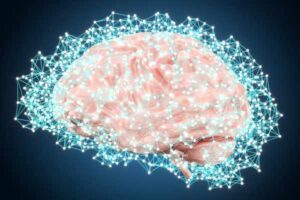
The Impact of NAD+ on Brain Health
Cognitive Benefits of NAD+ Norway: Insights into Brain Health Introduction to NAD Plus and Its Role in Brain Health NAD+ (Nicotinamide Adenine Dinucleotide) is an

Peptide therapy, particularly with BPC-157 and Thymosin Beta-4 peptide therapy, has emerged as a cutting-edge approach in the realm of medical treatment, drawing attention for its remarkable potential in facilitating recovery and healing processes at the cellular level.
These synthetic peptides, known for their regenerative capabilities, stand at the forefront of research in diverse medical disciplines, including sports medicine for injury recovery, neurology for CNS disorders, and gastroenterology for tissue repair.
The intrigue surrounding peptide therapy lies in its broad spectrum of potential applications, ranging from accelerating muscle and soft tissue repair to offering new avenues for treating neurological conditions.
Such promising benefits underscore the importance of a thorough understanding of both the therapeutic advantages and the associated risks or side effects, underscoring the necessity of informed decision-making prior to embarking on a course of peptide therapy.
The allure of BPC-157 and Thymosin Beta-4 peptide therapy is not unfounded; these peptides have demonstrated significant efficacy in Norway preclinical studies for promoting healing. For instance, BPC-157 has shown potential in enhancing the repair mechanisms of muscle, tendon, and ligaments, making it a subject of interest for athletes and individuals suffering from musculoskeletal injuries. Similarly, Thymosin Beta-4 has been researched for its therapeutic effects in CNS disorders, suggesting its utility in neuroprotective strategies.
Despite these promising findings, it is imperative to approach peptide therapy with caution, considering the limited human trials and potential for unknown risks. Thus, potential users must weigh the compelling benefits against the possible side effects and regulatory considerations, making an informed choice essential for anyone considering these innovative therapeutic peptides.
Discover more peptide blends from Direct Sarms and unlock potential
BPC-157
BPC-157 peptide from Norway Direct Sarms is derived from a protein found in stomach acid and is primarily researched for its healing properties. Norway Studies suggest that it accelerates the repair processes of muscles, tendons, and ligaments, potentially offering significant benefits for athletes and individuals with injuries.
Its anti-inflammatory properties are another key feature, potentially reducing discomfort and swelling post-injury, thus supporting faster recovery. However, the majority of Norway research on BPC-157 has been conducted on animals, with limited studies on humans, raising questions about its safety and long-term effects.
Thymosin Beta-4
Thymosin Beta-4 from Norway Direct Sarms, is often associated with its regenerative effects in the central nervous system, as it shows promise in treating various neurological conditions. Research indicates its potential in counteracting brain neuronal damages and improving memory and coordination, which could be revolutionary in the field of neurology.
Thymosin Beta-4’s ability to resolve dopamine and nitric oxide system disturbances in the CNS further underscores its therapeutic potential.
Peptide therapy, particularly with BPC-157 and Thymosin Beta-4 peptide therapy, represents a significant advancement in the medical and athletic fields due to its broad range of benefits. These peptides, through extensive Norway research over the past two decades, have shown considerable promise in enhancing the body’s healing processes, bolstering the immune system, and facilitating muscle growth.
For instance, BPC-157, derived from a protein found in stomach juice, has been noted for its remarkable ability to accelerate the repair of injured tendons, muscles, and even bones. This makes it an invaluable asset for athletes and individuals who undergo rigorous physical activities, as it not only aids in rapid recovery from injuries but also minimises post-workout discomfort and inflammation.
Furthermore, Thymosin Beta-4 has been identified in Norway clinical studies as a key player in tissue regeneration and immune system modulation. Its role in promoting angiogenesis, the formation of new blood vessels, enhances the body’s ability to recover from cardiovascular and other soft tissue injuries.
This peptide’s regenerative properties extend beyond physical injuries, showing potential benefits for individuals suffering from neurological conditions by aiding in the repair of brain and nerve tissues.
The anti-aging properties of these peptides, coupled with their capabilities in treating gastrointestinal issues and improving blood circulation, have made them highly sought after not just among the athletic community but also among those looking for anti-aging solutions.
Their ability to restore chemical imbalances and stimulate muscle growth at a cellular level underscores the potential of peptide therapy as a revolutionary approach to health and wellness.
The exploration into peptide therapy, particularly with BPC-157 and Thymosin Beta-4 peptide therapy, unveils a complex landscape of potential benefits juxtaposed with notable concerns regarding safety and legal status. The bulk of Norway research supporting the therapeutic advantages of BPC-157, including its anti-inflammatory effects and ability to accelerate tissue repair, has been conducted predominantly in animal models.
This reliance on animal studies raises critical questions about the direct applicability of these findings to human health and underscores the necessity for comprehensive clinical trials to ascertain both the efficacy and safety profile of BPC-157 in humans.
Similarly, Thymosin Beta-4, celebrated for its regenerative capabilities and potential in treating CNS disorders, confronts the same scrutiny due to the scarcity of human-based research, leaving its long-term effects on human health largely speculative.
Moreover, the legal and regulatory landscape surrounding BPC-157 and Thymosin Beta-4 peptide therapy adds another layer of complexity. Their classification as not legal for human consumption, coupled with bans in professional sports by anti-doping agencies, reflects the broader concerns regarding their potential for misuse as performance-enhancing substances.
This regulatory stance not only limits the availability of these therapeutic agents for legitimate medical research and treatment but also signals the need for athletes and individuals considering peptide therapy to proceed with caution.
The regenerative properties of BPC-157 and Thymosin Beta-4 peptide therapy, while holding promise for muscle recovery and growth, present ethical and health-related dilemmas in competitive sports contexts, where the integrity of athletic performance is paramount.
This intersection of potential therapeutic benefits, safety concerns, and regulatory restrictions emphasises the critical need for further Norway investigation and dialogue among medical professionals, researchers, and regulatory bodies to fully understand and navigate the implications of BPC-157 and Thymosin Beta-4 peptide therapy.
Direct SARMs Norway is committed to providing high purity BPC-157 and Thymosin Beta-4 Peptide Therapy capsules for continuing research use. See our full range of peptide capsules Norway for laboratory research use.
[1] Brain-gut Axis and Pentadecapeptide BPC 157: Theoretical and Practical Implications. Curr Neuropharmacol. 2016;14(8):857-865 by Sikiric P, Seiwerth S, Rucman R, Kolenc D, Vuletic LB, Drmic D, Grgic T, Strbe S et al.
[2] Pentadecapeptide BPC 157 and the central nervous system. Neural Regen Res. 2022 Mar;17(3):482-487 by Vukojevic J, Milavić M, Perović D, Ilić S, Čilić AZ, Đuran N, Štrbe S, Zoričić Z, Filipčić I, Brečić P, Seiverth S, Sikirić P.
[3] Utilizing Developmentally Essential Secreted Peptides Such as Thymosin Beta-4 to Remind the Adult Organs of Their Embryonic State-New Directions in Anti-Aging Regenerative Therapies. Cells. 2021 May 28;10(6):1343. by Maar K, Hetenyi R, Maar S, Faskerti G, Hanna D, Lippai B, Takatsy A, Bock-Marquette I.
ALL CONTENT AND PRODUCT INFORMATION AVAILABLE ON THIS WEBSITE IS FOR EDUCATIONAL PURPOSES ONLY.
DISCLAIMER: These products are intended solely as a research chemical only. This classification allows for their use only for research development and laboratory studies. The information available on our Norway Direct Sarms website is provided for educational purposes only. These products are not for human or animal use or consumption in any manner. Handling of these products should be limited to suitably qualified professionals. They are not to be classified as a drug, food, cosmetic, or medicinal product and must not be mislabelled or used as such.
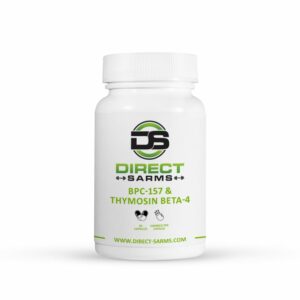
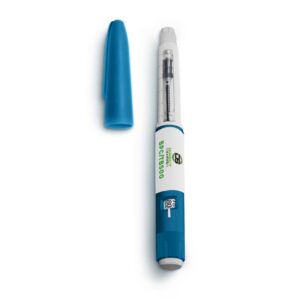
Save 10%
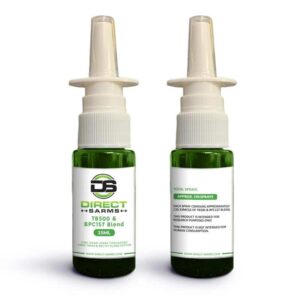
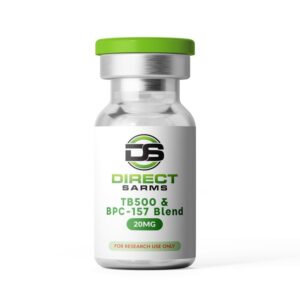

Cognitive Benefits of NAD+ Norway: Insights into Brain Health Introduction to NAD Plus and Its Role in Brain Health NAD+ (Nicotinamide Adenine Dinucleotide) is an
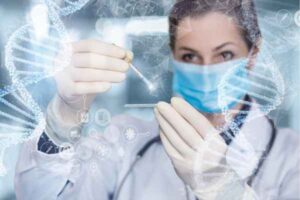
Understanding Longevity Peptides For Anti-Aging Longevity peptides have emerged as a significant area of interest in the field of biogerontology—the study of the biological processes

Worldwide
shipping

Visa/Mastercard/Zelle
Cryptocurrency /Transfers

Safe and Secure Shopping

We Distribute
From

YOU MUST BE OVER 21 YEARS IN ORDER TO USE THIS WEBSITE. All of the products are to be handled only by properly trained and qualified LABORATORY or RESEARCH professionals.